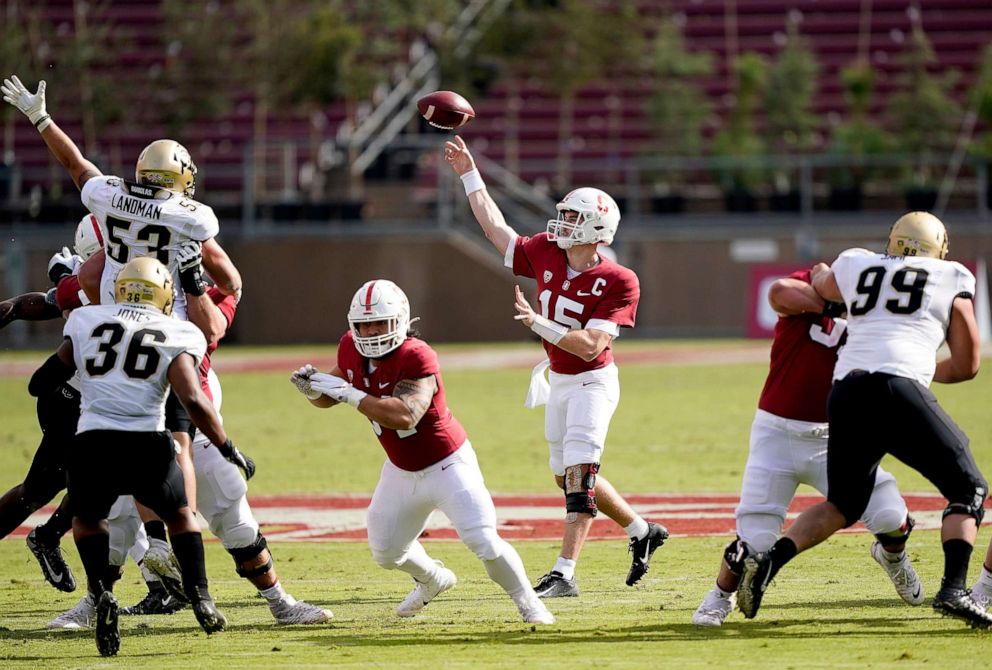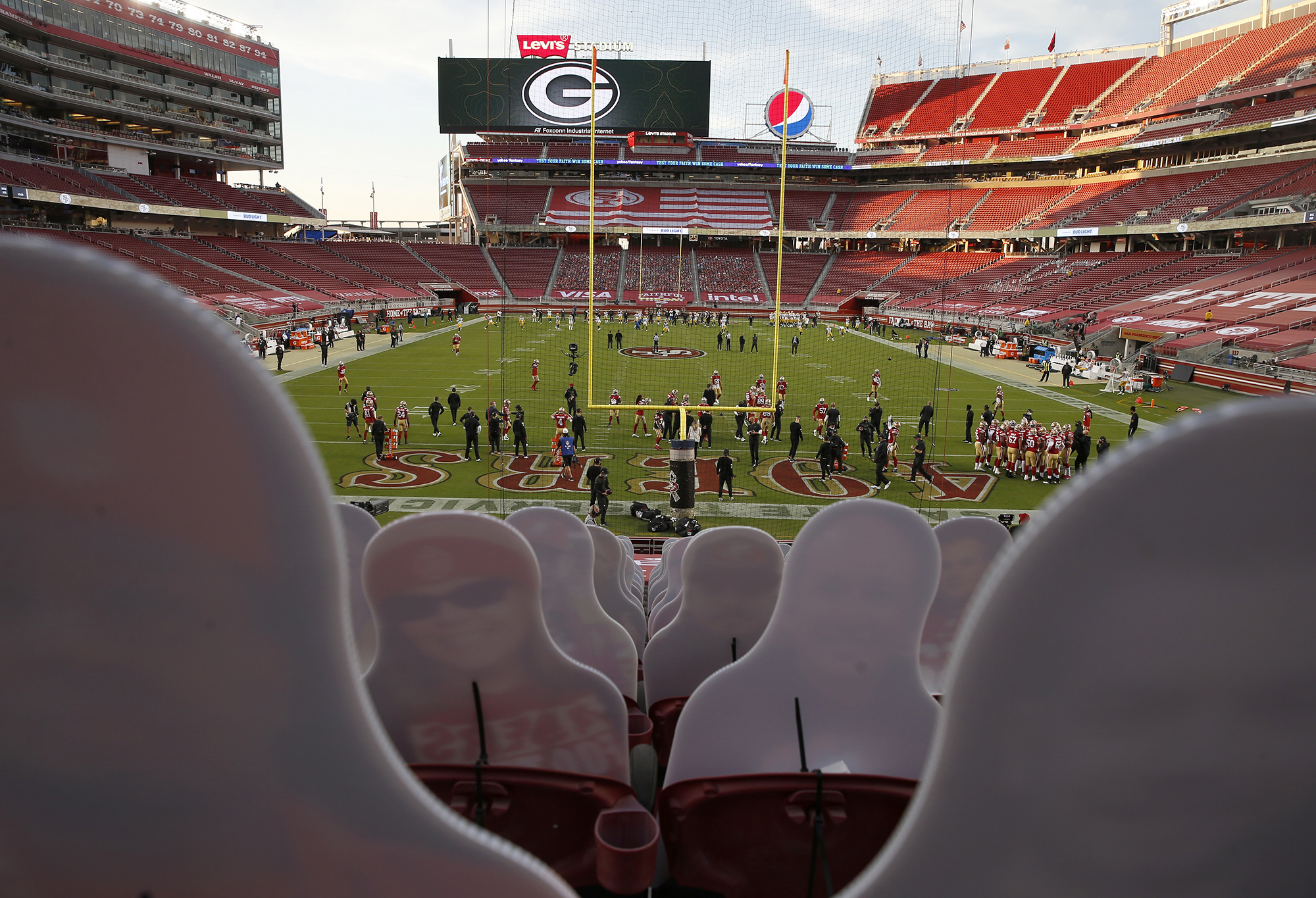San Francisco 49ers not allowed to play in stadium for 3 weeks under new COVID-19 restrictions
Stanford's football program will also be affected by the measures.
The San Francisco 49ers will not be allowed to practice or play in their stadium for three weeks under new county health restrictions that prohibit contact sports.
Stanford University's athletics, including its football program, will also be affected.
Santa Clara County health officials announced the new restrictions on Saturday, as the county reported a record 760 COVID-19 cases.
"Our case rates have been surging since November. In fact, we have the highest case rate of any county in the San Francisco Bay area," county health officer Dr. Sara Cody said at a press briefing.
Hospitalizations have also doubled since Nov. 12, she said, with a record 239 reported on Saturday.
The restrictions, which start Monday and last through Dec. 21, impact gatherings, capacity limits and recreational activities.
Among them, professional, collegiate and youth sports that involve direct contact are temporarily prohibited.

Health officials confirmed that means that the 49ers will not be allowed to play home games at Levi's Stadium. The team has games scheduled there on Dec. 7 and Dec. 13. It is unclear if the games will be moved or postponed.
The Stanford Cardinal football team also currently has a home game scheduled for Dec. 12.
Neither team has allowed fans into their stadiums this season.
Additionally, people who travel more than 150 miles from home will have to quarantine for 14 days. The 49ers are currently headed to Los Angeles for a game against the Rams Sunday afternoon, as noted by sports reporter Jennifer Lee Chan. It's unclear if the new quarantine order will impact the team.
"We are aware of the Santa Clara County Public Health Department's emergency directive," the 49ers said in a statement. "We are working with the NFL and our partners on operational plans and will share details as they are confirmed."
Stanford has not publicly responded to the new measures. Neither have the NFL or Pac-12.
The San Jose State football program would also be affected by the regulations. Training camp for the NHL's San Jose Sharks, set to begin in early December, could also be affected.
Other new county restrictions will limit hotels to essential travel, health care workers and quarantine or isolation purposes. Card rooms will also close. Capacity at most indoor facilities will be reduced to 10% (grocery stores and pharmacies can operate at 25% capacity), and outdoor gatherings will be limited to 100 people.
Health officials also urged residents to stay home as much as possible.

"This pandemic is like a high-speed train, and our projections tell us that we are on target to derail by around the third week of December if we don't apply brakes right now with all our collective might," Cody said.
The current projections do not take Thanksgiving into account, with holiday gatherings and travel likely to "create a surge," she added.
The measures are in addition to a nightly curfew and nonessential business closures issued by the state for counties including Santa Clara that are in the "purple" tier, indicating widespread COVID-19 risk.
ABC News' Abigail Shalawylo and Matthew Fuhrman contributed to this report.




